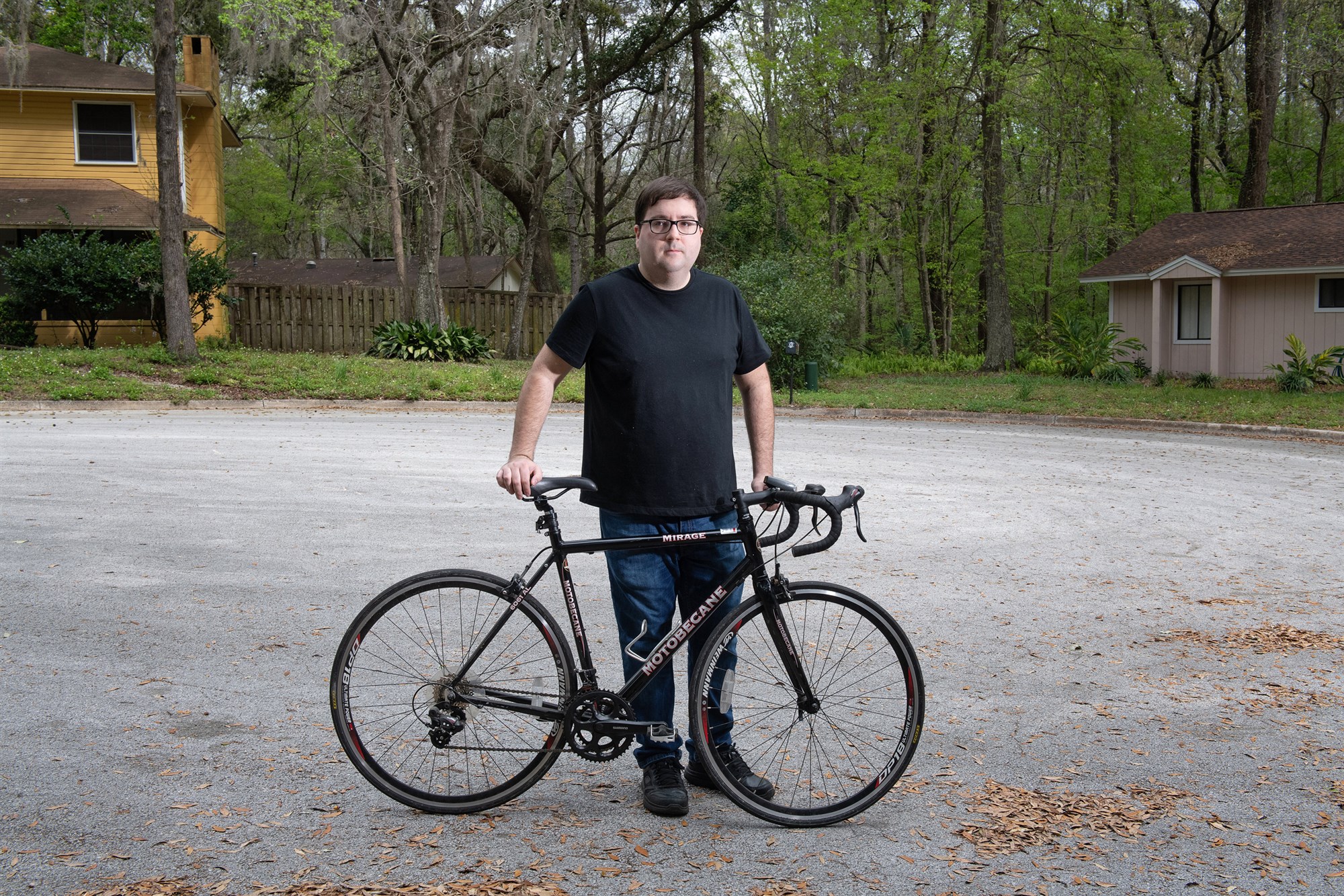I'm almost never an "early adopter" when it comes to technology. Two years after getting an iPhone, I'm still adapting to--and sometimes resisting--it. Some features are nice, but there are some functions I rarely, if ever use. In fact, I keep some of them turned off.
One of those features is the tracking device. Sometimes I'll use it to help me find directions and, I suppose, if I were lost or in some sort of emergency, it might help me to find my way or for someone to find me. But I think it's just creepy that my whereabouts could be known at all times.
Actually, it's more than creepy. It can be disruptive, even dangerous. That's something Zachary McCoy of Gainesville, Florida learned the hard way.
He'd been using RunKeeper to track his cycling as Google location services were activated on his Android phone. During one ride nearly a year ago, he passed by the same house three times in the space of an hour.
It just happened that the house was the scene of a burglary.
Google shared this location data. It wasn't enough for law enforcement officials to identify him personally, at least not immediately.
But he would later receive an e-mail from Google's legal investigation team, notifying him that local police made a request for information from his account. The company explained that it would release the data unless he went to court to block it--and that he had seven days to do so. "I didn't know what it was about, but I knew the police wanted to get something from me," McCoy recalled in a recent interview. "I was afraid I was going to get charged with something, I don't know what."
He had no previous record, and there police had no reason--other than the data from Google--to suspect him. His lawyer, Caleb Kenyon, criticized the police for making their decision based on a hunch rather than traditional policing techniques. "This geoforce warrant effectively casts a blind net backwards in time, hoping to ensnare a burglar," Kenyon said. "This concept is akin to the plotline in many a science fiction film featuring a dystopian, facist government."
Later, the police in Florida withdrew the original location request, claiming that new details emerged that led them to believe that McCoy was not the real culprit. They would not, however, share what those details were.
In any event, this incident shows us how far some law enforcement officials will go, and what methods--however flawed--they will use to track down a suspect, even if he or she is potentially innocent. It also begs the question of how things might have turned out for a guy who was riding his bike and minding his own business if he couldn't afford a lawyer and defend himself in court.
Oh, and it reaffirms my commitment to cycling without electronic devices.
One of those features is the tracking device. Sometimes I'll use it to help me find directions and, I suppose, if I were lost or in some sort of emergency, it might help me to find my way or for someone to find me. But I think it's just creepy that my whereabouts could be known at all times.
Actually, it's more than creepy. It can be disruptive, even dangerous. That's something Zachary McCoy of Gainesville, Florida learned the hard way.
 |
| Zachary McCoy |
He'd been using RunKeeper to track his cycling as Google location services were activated on his Android phone. During one ride nearly a year ago, he passed by the same house three times in the space of an hour.
It just happened that the house was the scene of a burglary.
Google shared this location data. It wasn't enough for law enforcement officials to identify him personally, at least not immediately.
But he would later receive an e-mail from Google's legal investigation team, notifying him that local police made a request for information from his account. The company explained that it would release the data unless he went to court to block it--and that he had seven days to do so. "I didn't know what it was about, but I knew the police wanted to get something from me," McCoy recalled in a recent interview. "I was afraid I was going to get charged with something, I don't know what."
He had no previous record, and there police had no reason--other than the data from Google--to suspect him. His lawyer, Caleb Kenyon, criticized the police for making their decision based on a hunch rather than traditional policing techniques. "This geoforce warrant effectively casts a blind net backwards in time, hoping to ensnare a burglar," Kenyon said. "This concept is akin to the plotline in many a science fiction film featuring a dystopian, facist government."
Later, the police in Florida withdrew the original location request, claiming that new details emerged that led them to believe that McCoy was not the real culprit. They would not, however, share what those details were.
In any event, this incident shows us how far some law enforcement officials will go, and what methods--however flawed--they will use to track down a suspect, even if he or she is potentially innocent. It also begs the question of how things might have turned out for a guy who was riding his bike and minding his own business if he couldn't afford a lawyer and defend himself in court.
Oh, and it reaffirms my commitment to cycling without electronic devices.